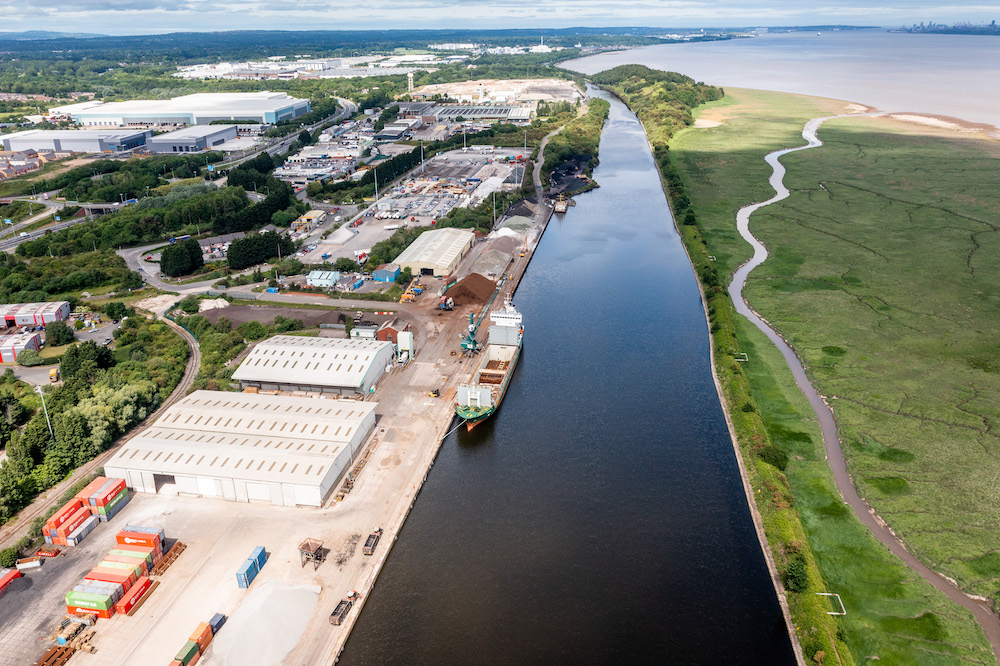
Born out of a drive to capitalise on the lucrative cotton import and export trade during the industrial revolution, the Manchester Ship Canal (MSC) was widely considered a marvel of engineering when it was completed in December 1893.
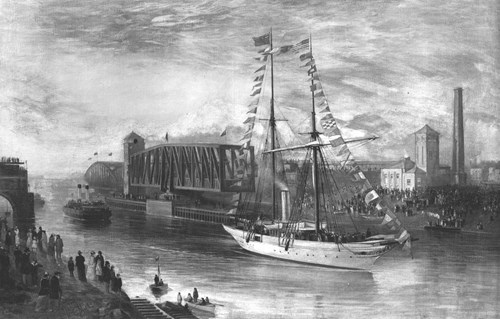
A painting by James Mudd showing the opening of the Manchester Ship Canal by the yacht Norseman, 1894.
The 36 miles of waterways cost more than £15 million to construct – representing more than £1.5 billion of investment by today's standards, and it quickly became one of Britain’s busiest ports despite being situated 40 miles inland. The infrastructure developed during the construction of the canal opened the door to other significant advancements, such as the Manchester Ship Canal Railway, enabling increased movement of cargo across the North West and strengthening the import and export of goods.
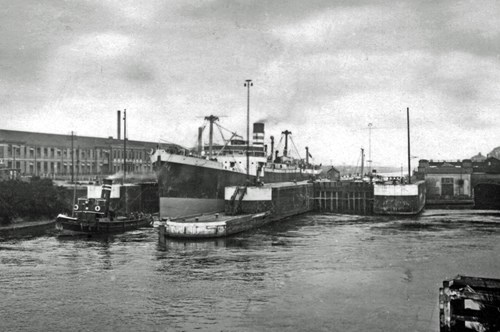
An ocean-going liner passing through Latchford Locks in 1950 (via RuthAS, CC BY 3.0).
By connecting the two biggest industrial cities of the time, Liverpool and Manchester, the MSC propelled England towards even greater industrial success. It was one of the greatest achievements of the Victorian age and laid the foundations for the future Northern Powerhouse. The connection of Manchester and Liverpool also brought with it great potential for economic growth and prosperity in the north of England that remain to this day.
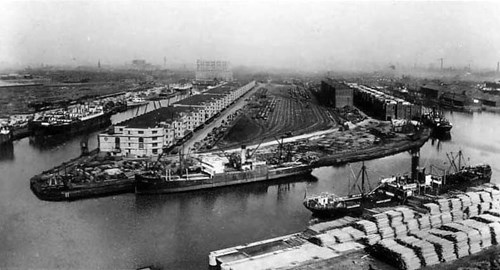
Manchester (Salford) docks at the eastern end of the Manchester Ship Canal at the turn of the 20th century – a destination for both coastal and ocean-bound vessels carrying both cargo and passengers
Running from the Mersey Estuary into the centre of Manchester, the Manchester Ship Canal has 12 terminals and handles around 6.22 million tonnes of cargo per year. The canal has adapted over the years to the various adjustments in cargo, and cargo handling, and continues to offer an alternative, sustainable connectivity opportunity for businesses, removing freight from overcrowded roads and rail. An increasing number of businesses that transport goods via Manchester are changing part or all of their cargo to the canal. This is for a number of reasons, but the two main ones are that the MSC is more economical than road or rail transport, and it is also a viable way for businesses to cut down on their emissions.
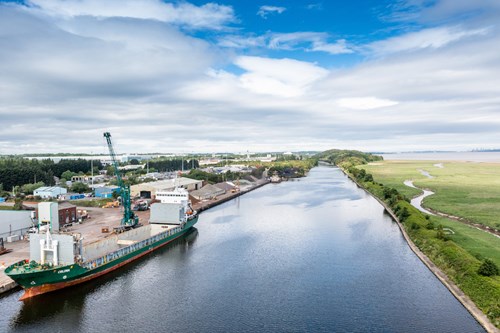
The 36-mile Manchester Ship Canal has 12 terminals and handles more than six million tonnes of cargo annually.
Today, the canal is owned by Peel Ports Group, which also operates the nearby Port of Liverpool, and continues to be a resilient, efficient and sustainable way for businesses to transport their cargo. It is expected to continue to be increasingly popular over the coming years. The ability of a 19th century Victorian canal to serve 21st century needs is a testament to the architectural magnificence of the MSC. Such historical heritage is something that strengthens the reputation of the MSC and inspires businesses to return to traditional, cost-effective ways of transporting goods.
Simultaneously, new and innovative technologies are revolutionising the business world. Whilst this period of change poses uncertainty, it also provides the opportunity for Manchester to strengthen and grow its trade and business links both domestically and internationally. Given the current global focus on reducing carbon emissions and the expectation for businesses to embed sustainable practices, the MSC can provide an extensive range of businesses with the opportunity to move large volumes of cargo in an environmentally responsible way.
This is particularly important to Peel Ports Group, which has made a commitment to become a net zero business by 2040. The UK’s second largest port operator continues to make a number of advancements in that regard, and recently announced its operational greenhouse gas emissions have fallen by around a third since 2020. Being as sustainable as possible is also of particular importance to the construction industry, and the MSC can provide a sustainable route in for commodities as well as an out route for waste.
This provides an opportunity to develop the economic and social growth of Greater Manchester whilst providing a feasible solution to dealing with waste in a sustainable way. Phil Hall, Mersey Port Director, Peel Ports Group, said: “The MSC has been an invaluable tool in shaping the north west of England into the industrial powerhouse that it is known as today.
“The port has created and sustained a legacy of innovation since it opened its gates in 1894, currently leading the way in the race towards net zero, providing sustainable and cost-effective transport solutions for a wealth of industries.”
He added: “Our mission is to continue to be an innovative player in the North West, strengthening the region’s trade offering and sustaining our reputation on the world stage for years to come.”